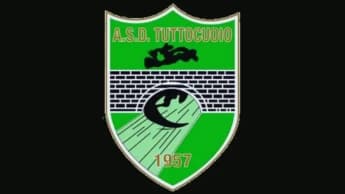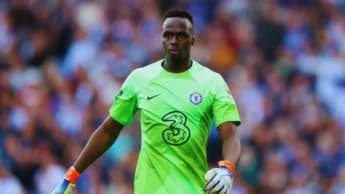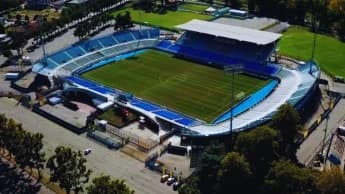
Founded in 1897, Juventus has established itself as a titan in football, known for its rich history, tactical prowess, and passionate fanbase, while looking to the future with youthful talent.
Juventus Football Club, widely known as Juventus or Juve, was established in 1897 in Turin, Italy. This club stands as one of the oldest and most successful football institutions globally, often seen as the foundation of Italian football. Throughout its rich history of over a century, Juventus has come to embody excellence, professionalism, and determination. The team’s iconic black and white striped uniforms are recognized worldwide, and their nickname, La Vecchia Signora ('The Old Lady'), signifies the club's enduring legacy, tradition, and high standing in the realm of football.
Juventus was established by a group of young students in Turin, and from the beginning, it has displayed a strong dedication to achieving success. Although the club began as a regional entity, it experienced significant growth in the early 20th century, elevating its status to that of a leading contender in Italy. For many years, Juventus has represented excellence not only in domestic tournaments but also on the European stage and beyond. Throughout its history, Juventus has earned admiration for its values of professionalism, consistency, and a focus on hard work, which have solidified its reputation as a respected institution in the world of football.
The culture of the team is closely linked to its rich history of success, earning it recognition as one of the most organized and disciplined clubs worldwide. Juventus is celebrated for its ability to continually attract outstanding talent, assemble remarkable teams, and compete at the highest levels consistently each year. Moreover, the club is renowned for its fiercely loyal fanbase, known as the 'Bianconeri', who passionately support their team all over the world.
Accomplishments of the Team
Juventus is undeniably one of the most accomplished clubs in the annals of football, both at a national and international level. The club’s numerous achievements reflect its enduring dominance in the sport.
The club has a long history of competing in significant international tournaments, earning a reputation for solid and strategic performances that have enabled them to maintain their status among the top teams in Europe.
Strengths & Weaknesses
One of the most significant strengths of Juventus is its formidable defense. The club has nurtured some of the finest defenders in football history, such as Gianluigi Buffon, Giorgio Chiellini, Leonardo Bonucci, and Antonio Cabrini, all of whom have played vital roles in the team’s defensive achievements. Their proficiency in defense has been the cornerstone of their successes, and even in contemporary football, Juventus remains focused on maintaining strong defensive organization. Juventus is recognized for its tactical acumen and adaptability under various managers, ranging from Marcello Lippi to Massimiliano Allegri. This capability to modify formations, adjust tactics, and leverage the team's strengths has enabled the club to achieve consistent success throughout different periods.
The club has boasted several elite midfielders who have played pivotal roles in the team's core, including Michel Platini, Andrea Pirlo, Paul Pogba, and Miralem Pjanic. Juventus's midfield has frequently served as the driving force, orchestrating the flow of the game and facilitating smooth transitions between defense and offense. Juventus has developed a robust winning mentality, shaped by years of triumph. This attitude is embedded in the club’s identity and is reflected in their unwavering quest for success in all tournaments they participate in. Their desire to win remains apparent even during phases of rebuilding or when facing challenges.
Although Juventus's experienced players have been an asset for many years, the club's increasing dependence on older athletes has emerged as a potential drawback. Notable figures like Giorgio Chiellini and Andrea Pirlo (during his tenure) are no longer at their prime, and while their expertise is beneficial, there is a pressing need for younger talent to inject fresh energy into the team. Even with some of the world's top attacking players, Juventus has occasionally struggled to achieve offensive consistency. The exit of Cristiano Ronaldo in 2021 created a notable void in their attack, and despite having skilled forwards like Dusan Vlahovic, there have been instances where they lacked the decisive edge in crucial matches.
Recent European campaigns for Juventus have been characterized by disappointing performances, especially in the UEFA Champions League. Their failure to secure a victory in the tournament since 1996, while consistently reaching the final in the past ten years, emphasizes their difficulties in high-pressure scenarios on the European stage.
Tactics & Style of Play
Juventus is recognized for its disciplined and well-structured style of play, which prioritizes robust defensive organization and tactical adaptability. This methodology is often referred to as 'catenaccio' (the 'door-bolt' style), a defensive strategy aimed at neutralizing the opponent's attacking threats while ensuring a tightly organized team formation.
Under Max Allegri's management, Juventus frequently utilizes a 4-3-3 or 3-5-2 formation. This setup incorporates two central defenders and wing-backs to enhance defensive strength while allowing fullbacks to advance when the team has possession of the ball. The midfield is typically composed of industrious players capable of disrupting opponent attacks and facilitating ball distribution. The attacking line often includes a mix of seasoned strikers and agile wingers, emphasizing rapid counter-attacks and exploiting gaps left by the opposing team.
In recent times, Juventus has been aiming to adapt by embracing a more possession-oriented style of play, especially under the management of Andrea Pirlo (2020-2021). However, this shift towards a broader, more attacking approach has yielded inconsistent outcomes. Although they continue to be a difficult team to break down, there are instances when Juventus's offensive tactics lack cohesion, particularly against teams that apply high pressure.
Memorable Matches
Prospects for the Future
As they look to the future, Juventus is undergoing a period of transformation. Following their successful run during the 2010s, the club aims to rejuvenate its roster by incorporating younger, promising talent while maintaining their winning mindset. They are significantly focusing on youth development, with players such as Dusan Vlahovic, Federico Chiesa, and Moise Kean anticipated to play crucial roles in the years to come.
Juventus is actively working to update their style of play, embracing the quick and dynamic attacking football that has become prevalent in European football. With the influx of young talent and a solid financial and infrastructural backing, Juventus is well-positioned to regain its status at the top of European football in the coming years.





